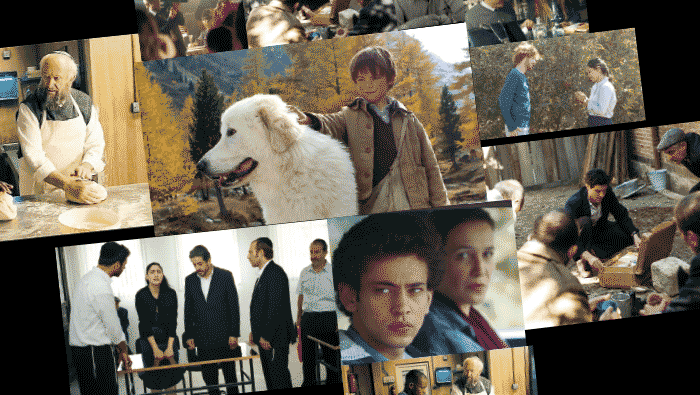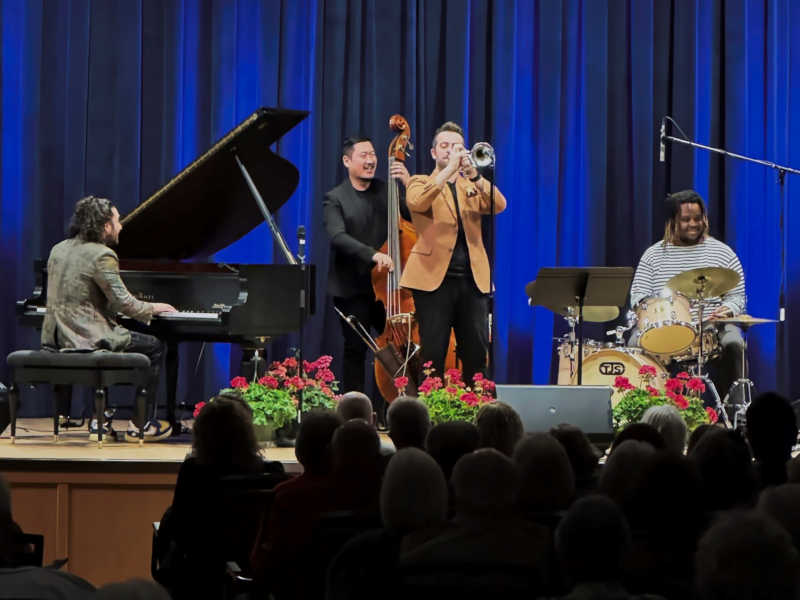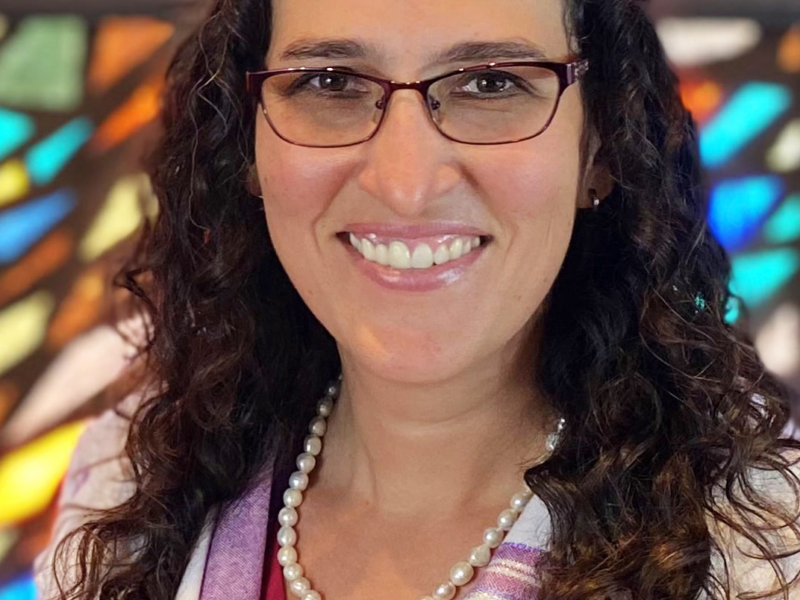Arizona is home to not just one, but two of the longest-running Jewish film festivals in the country – and both are marking milestones this year.
The Tucson International Jewish Film Festival celebrates its 25th anniversary from Jan. 14-23, while the Greater Phoenix Jewish Film Festival holds its 20th annual event from Feb. 14-28. Both festivals have grown steadily from modest beginnings to an expected audience of 3,000 for 20 films in Tucson and 6,000 viewers for 16 films in the Phoenix area.
—-
In 1991 the Tucson International Jewish Film Festival started off showing three films at the University of Arizona’s Gallagher Theater. According to Elaine Lisberg, who chaired the festival from 1994 to 1996, they would show one film in January, one in February and one in March. She joined the festival committee shortly after moving to Tucson. While previewing her first film during a selection meeting at the Tucson Jewish Community Center, she had an epiphany, “like Judy Garland and Mickey Rooney – ‘We need to put on a show!’ And I said, ‘We need to move this festival to the JCC.” That year, she says, they had movies morning, afternoon and night for two weeks, and the audience quickly grew to 5,000.
Since then, the festival has been based at the Tucson J, with screenings at additional venues such as the old Grand Cinemas Crossroads, The Loft Cinema (which hosts this year’s opening night) and Desert View Performing Arts Center in Saddlebrooke. For several years, screenings were held back at the Gallagher, too. “We would load up those big reels of film and run them over for a showing at the Gallagher,” Elaine says.
“We were using old-time equipment, 35-mm film that would break in the middle, and we were carting around huge reels of film,” Elaine says. “Gradually we’ve come into the 21st century, and we now have state-of-the-art viewing technology and audio equipment.”
The festival’s technology evolution is credited to Bob Nichol and Bob Polinsky of Ping Pong Media. “We went to the festival the first year we were here, in 2005, and to be quite honest, the technical side of the show was pretty terrible. We were just gripping the sides of our chairs. We loved the movie, but the sound was bad,” says Bob Nichol.
When they shared their suggestions for improvements with the festival coordinator, she asked them to volunteer. “I guess we should have seen that coming,” says Bob. They saw a great deal of potential in the auditorium, so they made an offer: If the Tucson J installed a cinema screen with a motorized grand drape to cover it, the two Bobs would contribute everything else – the projection equipment, amplifiers, speakers and other technical gear.
To honor his devotion and the impact he made, the 25th festival is dedicated in memory of Bob Polinsky, who succumbed to esophageal cancer at the age of 66 in January 2012.
“He was absolutely passionate about the film festival,” Bob says. “The J was a special place for both of us. He spent the last month of his life previewing films for the next year. I just felt it was a great way to honor his memory.”
“Bob Polinsky had been completely dedicated to this film festival,” says TIJFF Chair Steve Zupcic. “He and Bob Nichol had given thousands and thousands of hours, not to mention financial contributions that continue through today, including a fund to support the film festival into the future.”
From 2010 to 2013, the TIJFF also ran the Fabulous Faygeleh Film Festival, a stand-alone series of LGBT films held on the last day of the festival. Starting in 2014, these films were incorporated into the regular schedule. “This is very parallel to the way gay, lesbian and transgender individuals have integrated in the Jewish community,” says Steve. “We’ve integrated those films, rather than putting them on a separate shelf by themselves.”
He describes this year’s selection of films as speaking to the Jewish experience today from a broad range of perspectives, following a thread that captures the diversity and unity of the Jewish people. Steve says his goal is for the festival to bring that diversity to as wide an audience as possible. “How in the world are we going to combat anti-Semitism if we don’t communicate with the broader community?”
—–
In 1996 Sheldon and Phyllis Pierson were inspired to launch the Phoenix Jewish Film Festival after attending a Jewish film festival in Los Angeles. “Phoenix didn’t have a single film festival, nothing at that time,” says Phyllis. So they decided to start one. They had no idea where to begin, but were determined to give it a shot.
They brought the idea to Rabbi Bill Berk, head rabbi of their synagogue, Temple Chai, at the time, who loved the concept. The late Rabbi Albert Plotkin of Congregation Beth Israel in Scottsdale introduced them to his daughter, Janis Plotkin, who ran the San Francisco Jewish Film Festival from 1982 to 2002. She sent a catalog of distributors, and the Piersons spent the summer writing letters. Once they had a list of films, they went back to Rabbi Berk, who suggested bringing in other synagogues. Beth El Congregation joined in as a partner. The first Phoenix Jewish Film Festival featured three films screened at a theater that they rented for $1 a seat. They made enough money to split the profits between the two sponsoring synagogues. The following year a third synagogue joined.
Fast forward to 2004. After reading a biography of Jewish baseball legend Hank Greenberg, Gloria and the late Syd Israel thought their synagogue might be interested in showing a documentary about his life. The congregation turned them down. Undaunted, Syd said, “I’ll show them. I’m going to start a Jewish film festival,” says Gloria. Taking the DIY approach, they also turned to Janis Plotkin, who by this time had written a book on how to start a film festival.
To get the community involved, they offered to donate part of the proceeds to the Ed Robson Branch Library in Sun Lakes. According to Gloria, the owner of the Pollack Cinema offered to screen the films for free. The first festival consisted of four films, shown on four consecutive Sundays, and the Israels donated the profits to both secular and Jewish nonprofit organizations.
In 2009 the two festivals merged to form the Greater Phoenix Jewish Film Festival. It has since grown to include screenings at three theaters across the Valley – in Scottsdale, Chandler and Peoria, and is still run entirely by volunteers.
According to GPJFF Executive Director Bob Segelbaum, most of the films are international, from 10 different countries, and all have a Jewish theme or at least Jewish characters. “We have comedies, dramas, documentaries,” he says. Many of the screenings are followed by commentary and Q&A with guest speakers.
The festival’s 25th anniversary celebration on Feb. 11 at the Phoenix Art Museum will feature music by a string quartet from the Arizona School for the Arts, hors d’oeuvres, drinks, access to several museum galleries and a screening of “The Wandering Muse.”
The film, which features a series of encounters with Jewish musicians around the world, is a fitting start to the festival. The Montreal Gazette calls it “a fascinating eye-opener … filled to the brim with good songs.”





